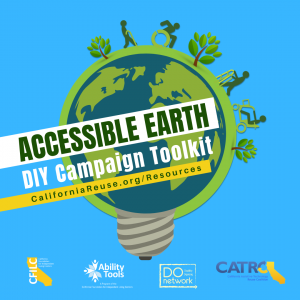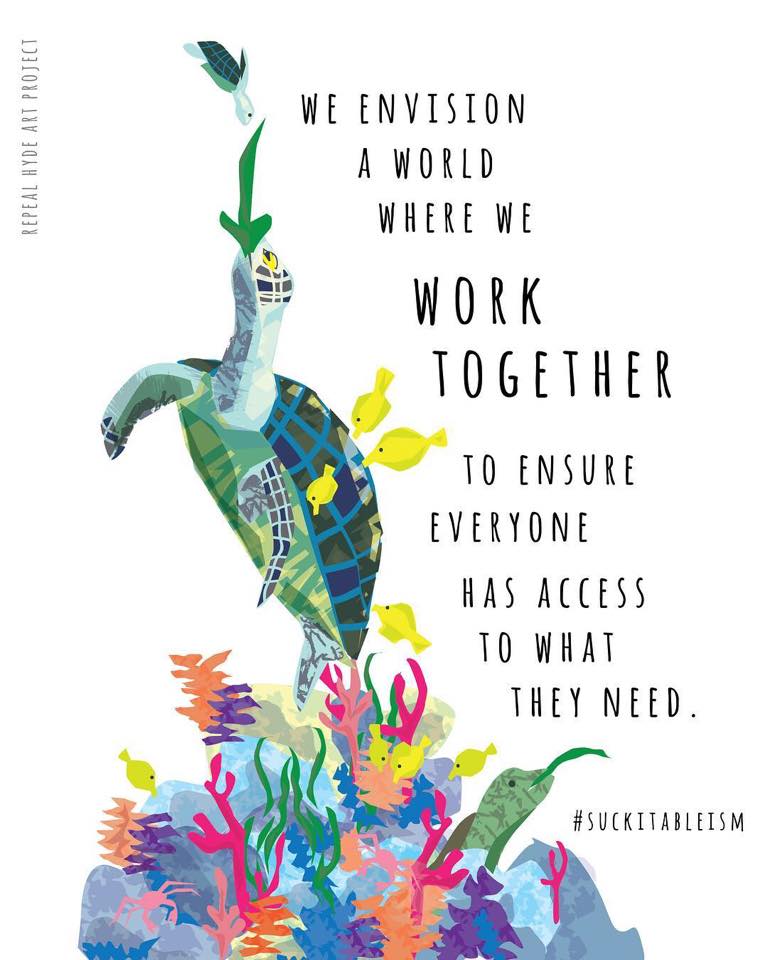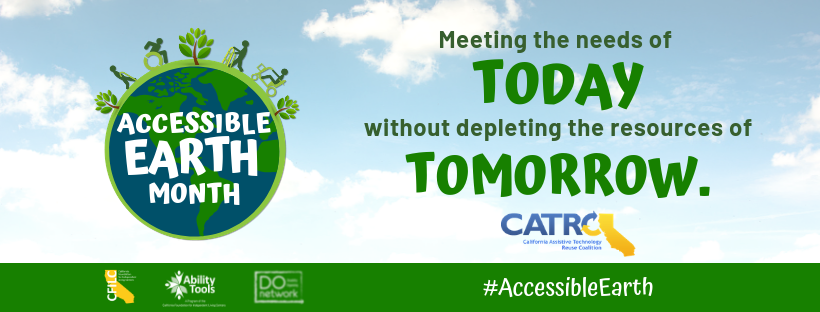
April 22nd is Earth Day, a unifying gathering that brings together all walks of life to celebrate our planet, activate change, and work together to build an abundant future. Let’s work together to make the future more inclusive for people with disabilities.
In 1987, the United Nations defined “development with sustainability” as something that “meets the needs of the present without compromising the ability of future generations to meet their own needs.”
Through Ability Tools and the Disability Organizing (DO) Network, the California Foundation for Independent Living Centers (CFILC), has launched its first Accessible Earth campaign in celebration of the collaborative efforts to make environmental conservation efforts accessible for all, including those with disabilities. Check out the Accessible Earth DIY Toolkit as a resource to create your own event and social media campaign: http://californiareuse.org/resources/accessible-earth-day.php
Climate Impacts on the Disability Community
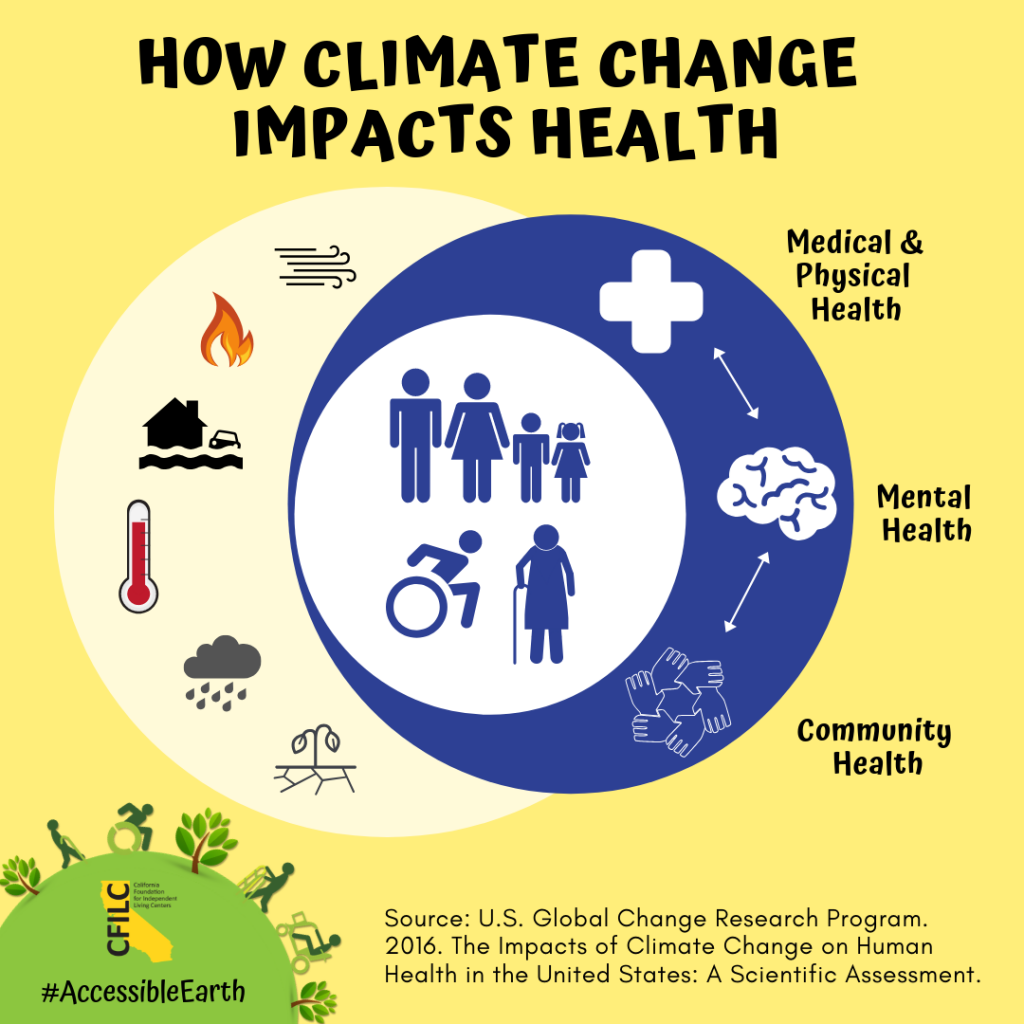
Did you know that climate change impacts physical, mental, and community health? (And unfortunately, people with disabilities are more vulnerable to these impacts.) Extreme weather, emergencies and disasters can strike quickly and without warning, forcing people to quickly leave or be confined in their home unexpectedly. For the millions of Americans who have disabilities, emergencies, such as fires, floods and acts of terrorism, present a real challenge.
Accessible, Sustainable Solutions
The World Institute on Disability has launched its New Earth Initiative to provide groundbreaking research, education materials, and Partnerships with government, nonprofits & foundations.
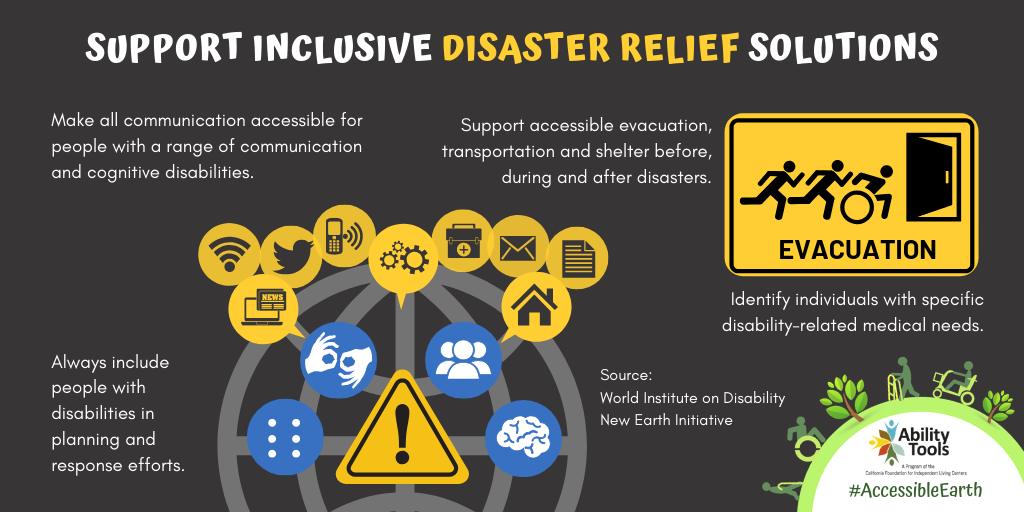
The Disability community has only recently been more visible in the discussion of sustainability. The California Assistive Technology Reuse Coalition (CATRC) is helping to meet the needs of Californians with disabilities by providing previously-owned equipment at little or no cost. In doing so, CATRC is also helping to reduce harm to the environment by:
- Preventing additional waste in landfills;
- And reducing the need for additional manufacturing, which contributes to a carbon footprint.
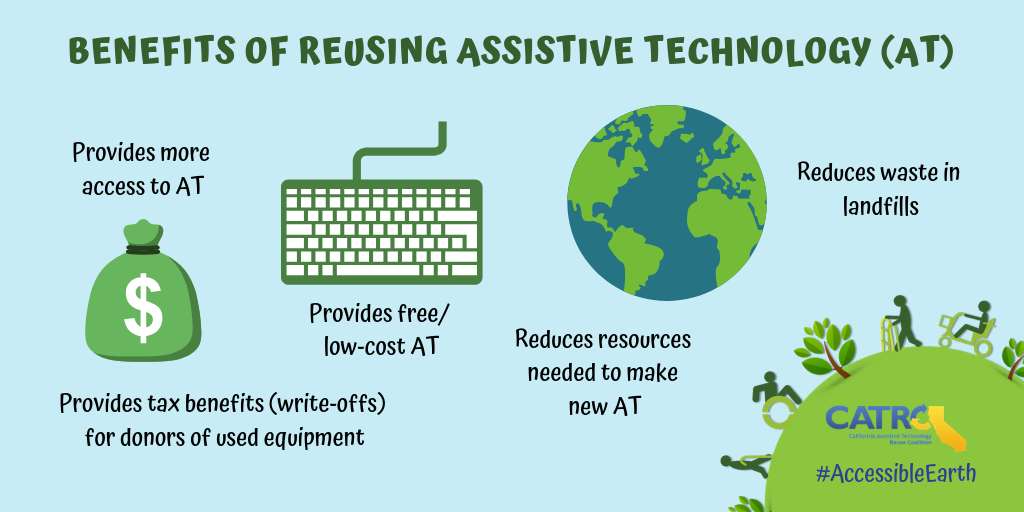
Building Partnerships
With support from Monterey Bay Aquarium, Disability Organizing (DO) Network conducted the nation’s first study on the Disability community’s experiences with non-plastic alternative straws. Check out the report here. Get tips on collaborating with local businesses in the Alternative Straw fact sheet.
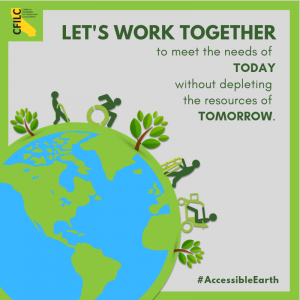
Join the conversation on social media for a more Accessible Earth!
Be sure to follow and use #AccessibleEarth to join the conversation!


